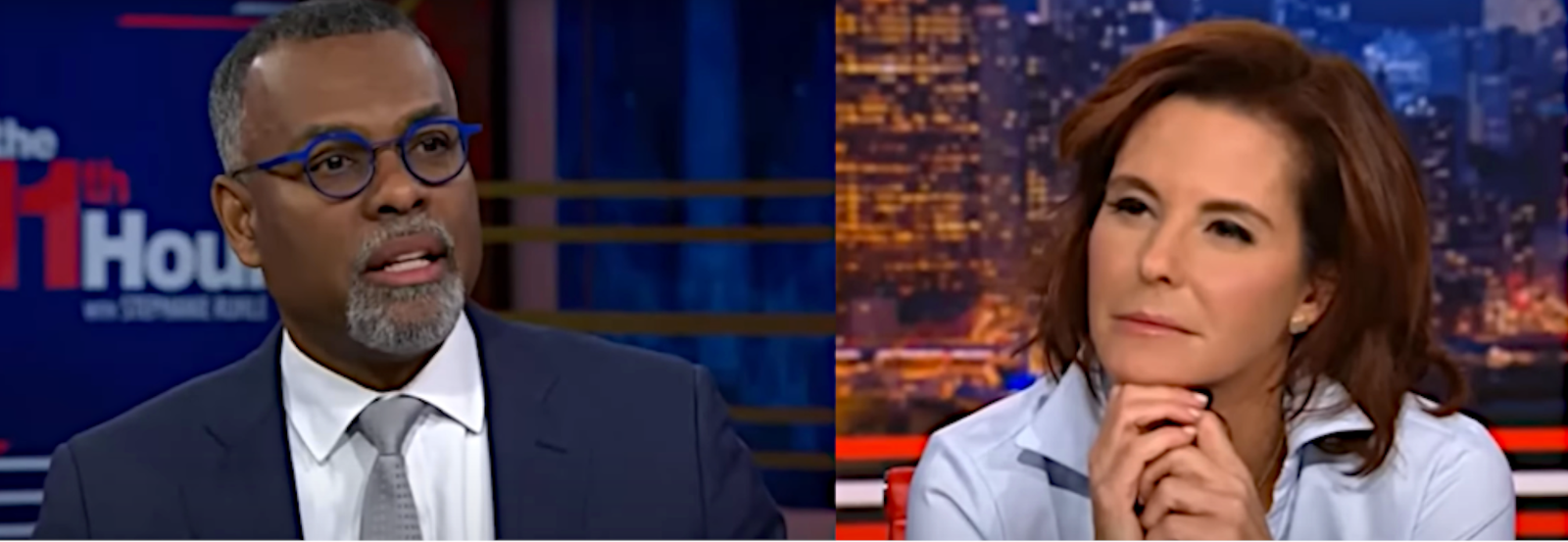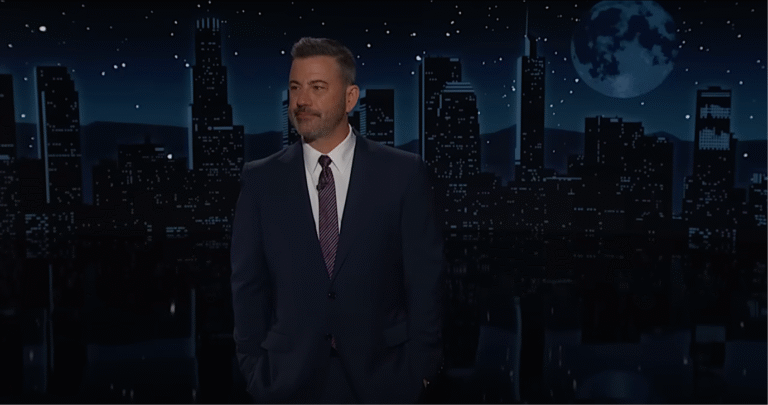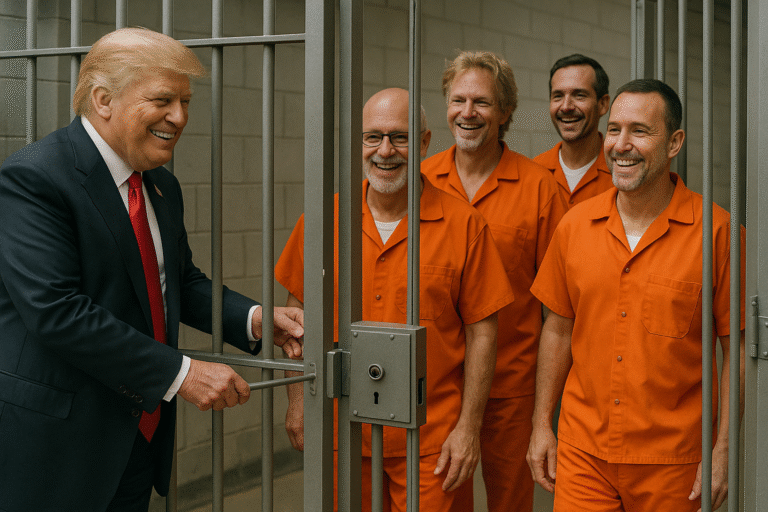Ah, America, the “Land of the Free and Home of the Brave.” Or, as Dr. Eddie Glaude and Stephanie Ruhle’s conversation reveals, perhaps more accurately, the “Land of the Selectively Informed and Home of the Convenient Myths.” In their spirited discussion, these two peeled back some layers on our nation’s identity—and trust me, it’s not as pretty as those fireworks on the Fourth of July.
The Blame Game: Is Trump the Boogeyman or Just Another Symptom?
Let’s be honest; blaming Donald Trump for America’s woes is like blaming the sun for global warming. Sure, he brings the heat, but that fire was already smoldering in the depths of our culture. From Charlottesville to El Paso, it’s tempting to pile all of society’s ills on one person’s shoulders, but Dr. Glaude reminds us: this is America. Trump didn’t invent the divide; he just gave it a bullhorn and a fancy slogan. If we’re going to move forward, it’s time to stop treating him as the sole supervillain and start asking what in the cultural DNA allowed him to thrive.
Identity Politics: The Uninvited Guest at America’s Dinner Party
Identity politics is the practice of organizing and advocating around the interests and perspectives of specific social groups based on race, gender, sexual orientation, religion, or other aspects of identity. Instead of focusing solely on general or economic issues, identity politics aims to address unique challenges and inequalities faced by particular groups. In politics, it’s used to shape policies and build coalitions that represent these groups’ interests, often influencing debates on civil rights, social justice, and representation. Politicians and activists may use identity politics to mobilize voters, raise awareness, and push for legal protections or policy changes that benefit specific communities.
Ruhle suggested that identity politics might be “silencing” people. But Glaude was quick to point out the irony here: Trumpism itself is a form of identity politics, but with a twist.
This isn’t about race or ethnicity—it’s about “whiteness” as an identity under siege. Cue the racially ambiguous Cheerios commercial; apparently, the mere sight of multiracial families in advertisements has some folks reaching for their MAGA hats or clutching their pearls. The discomfort isn’t about the economy, or taxes, or even crime rates. It’s about a shifting national identity that doesn’t align with a purely nostalgic vision of America.
The Economics Smokescreen: Is It Really About Your Wallet?
Here’s where it gets even more absurd. Yes, inflation is real, and yes, the cost of living has skyrocketed. But does that justify supporting a candidate with more criminal allegations than rally attendees? Are Americans genuinely so strapped for cash that they’ll trade democratic ideals for a perceived financial fix? Glaude wasn’t buying it, and honestly, neither should we. It’s time to admit that economics may be the excuse, but identity anxiety is the motivator. If you’re voting for “change” in the form of a morally questionable leader, maybe it’s not the change we should be worried about—but the value system behind it.
Let’s Talk Deal-Breakers (or Lack Thereof)
At some point, we’ve got to ask: what does it actually take to disqualify a candidate in America? Racism, sexism, lies, scandals, crimes? All seemingly just bullet points in the job description now. The bar keeps getting lower, and people just keep saying, “Well, he speaks his mind.” Well, when did mindless rants become synonymous with “honesty”? If a candidate’s rap sheet reads like a crime novel, yet they’re still getting votes, it’s not about ignorance anymore; it’s about indifference.
Media Bias: The Corporate Elephant in the Room
Of course, none of this is helped by corporate media. When Glaude dared to voice his concerns, Ruhle danced around them, not because she disagreed, but because, well, there’s only so much a network can say before upsetting its sponsors. It’s hard to blame her for keeping her job, but it’s worth noting that while “free press” is enshrined in our Constitution, the press itself isn’t exactly free. As long as networks worry more about advertisers than accuracy, we’re stuck with narratives that are just a little bit too convenient.
The American Dream (Or the Comfortable Lie?)
And so here we are, back to the myth of America. We tell ourselves we’re a nation that values freedom and opportunity. But when that “freedom” requires ignoring certain truths, what are we really upholding? As Dr. Glaude put it, “This is us.” The myth of an idealized America isn’t the problem; it’s the refusal to confront the reality beneath it. Until we face our collective denial, we’re just going to keep repeating the same cycles of division, scapegoating, and selective amnesia.
The Bottom Line
America has a choice: keep buying the myth or start owning up to the reality. If we don’t start acknowledging our own ugly truths, no amount of patriotic flag-waving will save us from ourselves.








